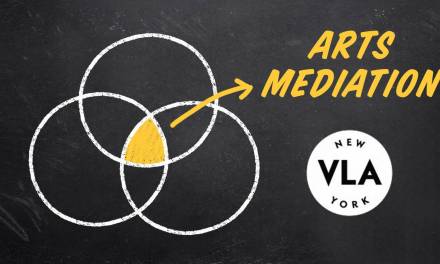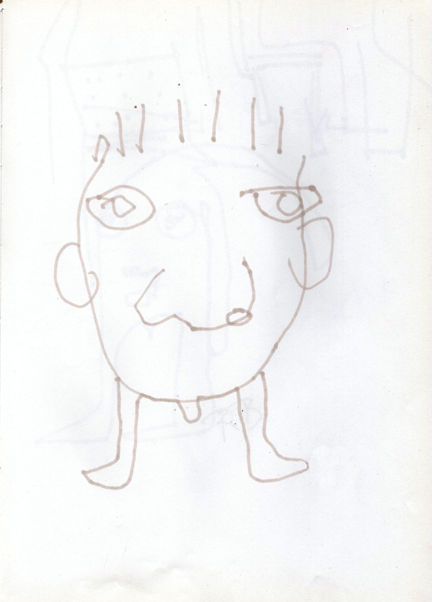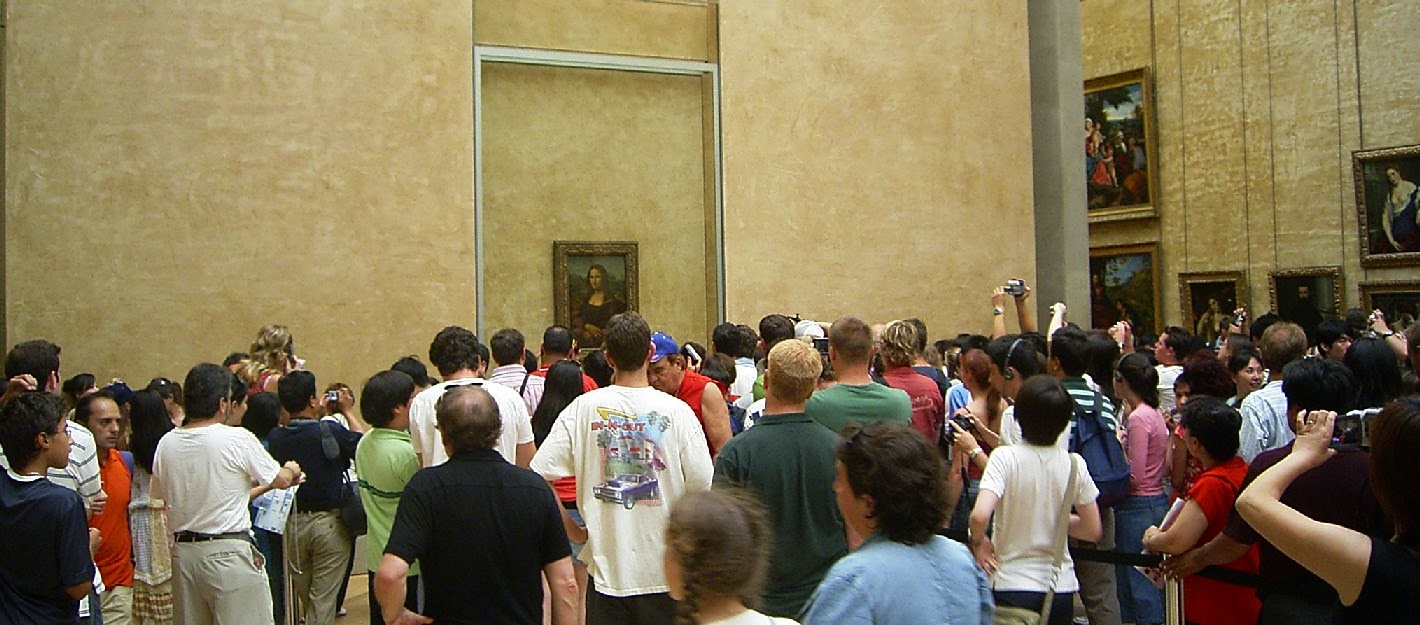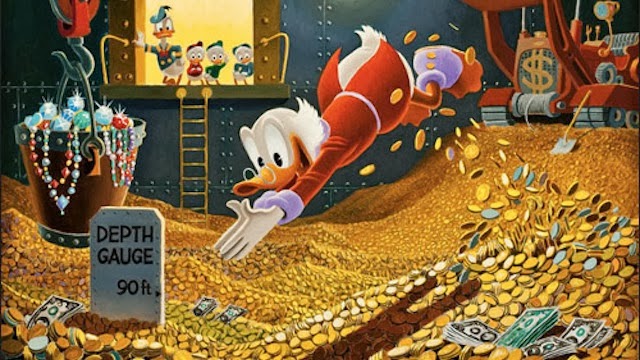David Palumbo
We often talk about the difficulty in creating art. The careful attention to concept, craft, and all the little things that have to come together to make strong work. We talk about how these challenges do not go away over time, that the life of an artist is (hopefully) one of constant growth and evolution. Every so often, however, a good or even great piece might just… happen. Like, almost on its own. No stressing, no careful finessing, just smooth easy flow. It is what we always want and, when we get it, will never trust. It is a complicated feeling.
A year or two back I was talking with a friend who also happens to be one of my favorite living painters. At some point we got on to talking about those odd moments when a sketch or painting just seems to tumble effortlessly onto the page and the subsequent distrust of these images. He specifically mentioned a piece which, despite drawing praise from others, he felt conflicted over including in his web site because “it just felt too easy.” Does that sound familiar?
Though I don’t imagine all artists feel this way, I suspect this is a feeling artists of all disciplines and skill levels will recognize. I know for sure that I feel it and I always try to keep it in check but it usually gets the better of me and has caused me to under price, not show, or otherwise neglect certain paintings. When I have shared them, it was with a sort of embarrassment because I felt like I just got lucky. I didn’t actually earn that one.
The funny thing is at the same time I also feel that, in other people, those pieces which jump right out of an artist can often be their more genuine and interesting works. In other people, those are the moments when the creative lightning is just flowing through them without second guessing, and that is cool to see. So why do we, when it comes to our own efforts, feel it is only legitimate if we beat our head on a wall, even just a little bit, before seeing a satisfactory result emerge?
One possible answer is that most artists have a talent for magnifying the faults in their own work which is sort of how we ever get to actually be any good. When it happens so fast, it is only natural to suspect that we have somehow missed something, let some critical mistake slip through. Then, when not finding one, we dismiss the good qualities in the work as a fluke. We’re embarrassed to stand behind the work because we worry that someone might … might what?
I think for me, it is a worry that it will look like I didn’t care. There is probably some critical flaw in the design or the concept is hollow and I didn’t bother working harder to improve it. This is firmly attached to the concern over what other people might think. If it seems that we are not trying, not locked in endless battle with our demons (or at least our medium), will it diminish the result? Strangely, while I can feel this in my own work, I will watch other artists and admire how gracefully and apparently without struggle they produce incredible images. If fact, I prefer work which flows over that which appears labored. When artists talk with admiration of others, it often might touch on this idea that their paintings seem effortless.
Another frustration in this is that I don’t enjoy the difficult parts. I don’t want to struggle, but am suspicious when it is absent. Don’t misunderstand this to be an essay on how painting is actually really easy but we have to pretend that it isn’t. Most of the work which I’m really proud of was certainly difficult in one aspect or another and some were painful from start to finish. Seeing those through to the other side brings with it a degree of satisfaction. In some way, I’m sure that I learned from those how bearing the discomfort is worth it in the end and so I am suspicious when the struggle never quite materialized.
I think this can lead to a danger as well, which is the habit which some people have (not just in their art but in their lives) of adding unnecessary difficulties. Besides under-valuing results which came easy, we might over-value work which took a great effort and so some will place unnecessary obstacles in their own path. Again, this is easy to see in others and not so easy to find in ourselves.
Of course, as mentioned in the beginning, an artist seeks growth and struggle is an inevitable step towards growth. I‘d like to think that, so long as the struggle in the work is about pushing ourselves to better achieve our intentions and discover something more personal and unexpected rather than just for its own sake, the struggle is healthy. Perhaps, in the end, that is what sits at the root of any embarrassment towards those occasional easy wins. That fear in the back of our thoughts that, if we allow ourselves to be satisfied with the ones that come easy, we might stop working towards that ever elusive next level.
Maybe it is best to always invite the struggle of growth, to always make room for the discomfort of self-improvement, but to also accept those moments of easy success as a reward and a sign that we are indeed moving forward just a little bit further each time.








Great post. This article is really very informative & effective. I think it must be helpful for us.
Facebook Likes
Thanks for these thoughtful posts. I often feel like struggling through the more difficult artwork is paying a price for my subconscious mind to grasp something beneficial to my next piece. So, once in awhile when it seems to flow easily out of a subsequent work, I all the more appreciate my growth because of the struggle(s) I just went through 🙂 It's the daylight that exists because of its contrast with the dark night. Thanks again, David.
In industry the Monday Morning staff meeting prevents these feelings from getting the best of you… I think my creditors had the same effect on me in my music business…
A good point. I remember a line from an episode of Mad Men along the lines of “think about the problem intensely and then forget it and the solution will jump out at you from nowhere.” I've always felt that made sense on the struggle of a difficult concept, that you work the problem over thoroughly and then let your brain rest and find the best solution while distracted, though looking it it over the course of multiple projects is interesting too. I'd never considered that, but I think you're right that the weirdly easy ones are probably in part problems you had been solving elsewhere without realizing it.
Next to the 'feeling slightly ashamed' because that illustration just happened and you feel, you just trick people into thinking that what you create is really a big or hard thing to do there is another thing that mostly comes after an 'easy' piece. The next time I struggle I immediatly think 'see….the last thing was just a lucky shot….it was just a happy accident that happend….you are not really an illustrator/artist. This struggle right here proofs, that so far, you got just lucky adn don't really know what you are doing!' Ofcourse I know thats not really true, but I kinda never really trust stuff I create. With an easy piece I think: lucky shot – and with one I struggled I am sure that this proofs that someday somebody will find out that I can't really draw at all. 😉
I definitely know this feeling, haha
This reminds me of a piece of trivia about the french neo classicist Ingres. His little portrait sketches have been and continue to be some of his most popular work; they are quick and feel off the cuff while retaining the high level of observational accuracy in his larger more sustained pieces. He apparently resented that his meticulously planned and executed paintings were overshadowed by these little drawings, presumably for reasons similar to the ones you're discussing. There's also some reason to believe he may have been using a camera lucida to do these portraits, which if true I imagine would even further diminish his sense of involvement in the creation of these drawings.
This sense of detachment from the creative process may be what's at the core of why we feel uneasy about pieces that come together easily. It feels like the piece just sort of happened on its own, and you have no real claim to it.
I think in general artists want some amount of the context of how and where a piece came from to translate to their audience. Illustration is laborious and skill intensive process. While I don't think many illustrators want this to be the principal takeaway from their work, it feels familiar when someone sees you drawing and says, “Wow, I could never do that!”. There's some continuity here between the illustrator's working process (this was difficult, time consuming, and skill testing) and the viewer's understanding of the finished piece (that looks difficult, must have taken sustained effort, and required skills I do not posses). This continuity breaks down when a piece comes together easily since the illustrator knows that particular image was not difficult for them to create, but the viewer is still thinking “Wow, I could never do that!”
good thoughts. also one of the reasons that I think preliminaries are often so interesting and yet many artists never show them.
Are you an affiliated person? You demand to accord an adventurous history book to your wife. You don’t acquisition an adventurous history book. No botheration our best essays online will accommodate you so abundant adventurous history for your wife. If you demand to booty our account please appointment our website…….
You Need Social Media Service such as Facebook Likes, Facebook Followers, Facebook Share, Facebook Post Likes, Twitter Followers, Twitter Re-tweets, Twitter Favorite, Instagram Followers, Instagram Photo Likes, YouTube Views, YouTube Subscribers, YouTube Video Likes, Pinterest Followers, Pinterest Likes, Pinterest Re-pins, Google Plus, Website Likes, Website Share, Website Tweets? Feel free to leave us a comment. Click our Social Media Website.
You Need Social Media Service such as Facebook Likes, Facebook Followers, Facebook Share, Facebook Post Likes, Twitter Followers, Twitter Re-tweets, Twitter Favorite, Instagram Followers, Instagram Photo Likes, YouTube Views, YouTube Subscribers, YouTube Video Likes, Pinterest Followers, Pinterest Likes, Pinterest Re-pins, Google Plus, Website Likes, Website Share, Website Tweets? Feel free to leave us a comment. Click our Social Media Website.
Hmm… I read blogs on a similar topic, but i never visited your blog. I added it to favorites and i’ll be your constant reader.
Buy Facebook Likes
Great post. This article is really very interesting and enjoyable. I think its must be helpful and informative for us. Thanks for sharing your nice post.buy facebook likes